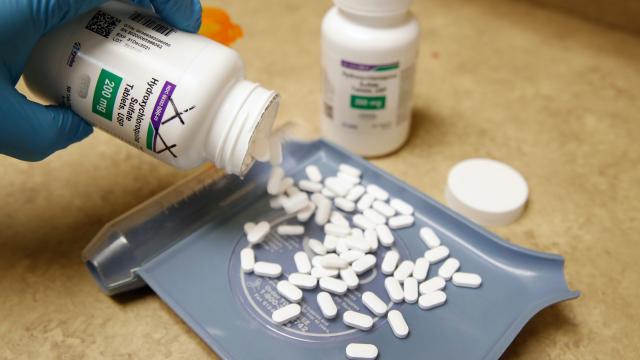The World Health Organisation has, for the second time in less than in a month, decided to suspend its clinical trial of hydroxychloroquine for covid-19 patients. The decision was made following a review of the latest evidence as well as its own preliminary data, which concluded the drug would likely not help save people from dying of the viral illness.
In mid-March, the WHO launched its SOLIDARITY trial, intended to test out a variety of potential treatments for covid-19. Included among these was hydroxychloroquine, an old drug used to treat malaria as well as some autoimmune disorders such as lupus. At the time, there was encouraging evidence from case studies that it and the related drug chloroquine could affect the virus’s ability to replicate and possibly improve a patient’s prognosis.
The evidence for the drug’s effectiveness since then has been mixed, but a research controversy may have ironically postponed its likely end as a covid-19 treatment.
In late May, an observational study published in the Lancet claimed to find no evidence that the drugs could prevent death in severe cases, as well as evidence that they could even raise someone’s risk of dying. The study was soon flagged by other researchers for likely using fake data and was retracted two weeks later, but not before the WHO decided to cut short its hydroxychloroquine trial over safety concerns. In the wake of the data scandal, and a day before the study was retracted by most of the co-authors on June 4, the WHO resumed its trial after a review concluded that the drugs were safe enough to keep testing out on people.
A day later, researchers from the UK announced their own results from a large-scale trial of hydroxychloroquine, which still found no lifesaving benefits. Though their data has yet to be published in a peer-reviewed journal, the findings were very influential. On Monday, the Food and Drug Administration said that it was pulling its emergency use authorization of hydroxychloroquine and chloroquine, citing data from the UK trial and other research.
Today, during its regular press briefing, the WHO’s Ana Maria Henao-Restrepo announced that the SOLIDARITY trial would once again stop randomizing patients to be treated with hydroxychloroquine.
According to Henao-Restrepo, the decision was reached shortly before the briefing and largely hinged on two things: the UK’s RECOVERY trial and an examination of current data from the SOLIDARITY trial, which both found no evidence of reduced mortality from the drug. Later, she clarified the WHO also considered evidence collected by the Cochrane Collaboration, a well-respected, independent organisation that conducts systemic reviews of proposed treatments.
At this point, it’s unknown what the SOLIDARITY data shows, how many people were treated, and when the WHO will release this data to the public. But though there are still other ongoing hydroxychloroquine trials elsewhere, the WHO’s decision is likely to further dim hopes that these drugs will prove useful for covid-19.
